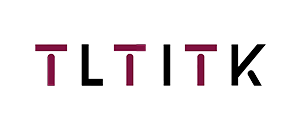Ошибка формата электронной почты
emailCannotEmpty
emailDoesExist
pwdLetterLimtTip
inconsistentPwd
pwdLetterLimtTip
inconsistentPwd

Новости
Здесь вы можете описать кусок текста, который хотите выразить

Interactive Whiteboards in Education: Making Classroom Interaction More Dynamic
In the modern classroom, engagement is key to effective learning. One powerful tool that's revolutionizing education is the interactive whiteboard. This technology has transformed traditional teaching methods, creating more dynamic, interactive learning environments. By integrating multimedia, fostering collaboration, and enhancing teacher-student interaction, interactive whiteboards are paving the way for a more engaging and productive classroom experience.
1. Enhancing Student Engagement
Interactive whiteboards break the monotony of traditional lectures by allowing students to actively participate in lessons. With features like touch interaction, drag-and-drop activities, and real-time problem solving, students can directly engage with content, making learning more hands-on. This increased interaction boosts student motivation and retention, leading to better learning outcomes.
2. Fostering Collaboration
Collaboration is at the heart of modern education, and interactive whiteboards make group work easier and more effective. Multiple students can simultaneously interact with the board, contributing to discussions, brainstorming, and working on projects together. This fosters teamwork, communication skills, and critical thinking, preparing students for future challenges.
3. Integrating Multimedia for Richer Learning
Interactive whiteboards enable teachers to integrate a wide range of multimedia content, such as videos, animations, and interactive simulations. These resources cater to different learning styles and make complex concepts easier to understand. For example, a history lesson can include a video of an ancient civilization, while a science lesson can feature interactive 3D models to visualize complex processes.
4. Real-Time Feedback and Assessment
Interactive whiteboards allow teachers to instantly assess student understanding during lessons. Teachers can ask questions, conduct polls, and gather responses in real time. This immediate feedback helps them adjust their teaching methods, address misconceptions, and provide personalized support to students who may need extra attention.
5. Easily Accessing Digital Resources
The integration of digital resources on interactive whiteboards makes it easier for both teachers and students to access a wealth of information. Teachers can quickly pull up online resources, share educational websites, or demonstrate software tools. This ease of access keeps the classroom dynamic and allows for a broader range of teaching materials that enhance learning experiences.
Conclusion
Interactive whiteboards are revolutionizing the classroom experience by making learning more interactive, engaging, and collaborative. By integrating multimedia content, facilitating real-time feedback, and fostering student participation, these tools enhance both teaching and learning. As educational technology continues to evolve, the interactive whiteboard is sure to remain a key asset in creating lively, dynamic classrooms that prepare students for a future filled with possibilities.

